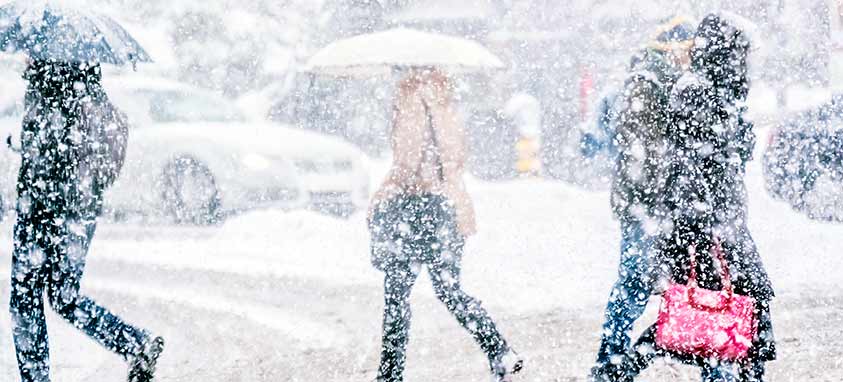Winter isn’t over yet. What steps can an event planner take prevent disaster from striking their event, even as 18 inches of snow falls outside?
Have a plan. Actually, have multiple plans.
Contingency plan – According to research from the Incentive Research Foundation, 54 percent of planners include contingency plans in all of their contracts with partners and vendors. Although these contingencies can make negotiations a little more tricky, risk-averse planners may find that they are worth spending a little more time discussing.
Backup plan – In some cases, presenters are flying in from far-flung destinations, meaning flight delays could leave you without a keynote speaker. To prevent this, consider having a contractual backup plan for your speakers and VIPs. During negotiations, ask presenters to recommend a stand-in in the event they can’t make it. It could be another member of their team or a colleague from their speaker network.
Security plan – Make sure your venue is as safe and secure as it can be. Check with the venue to ensure that it has a security and evacuation procedure in place. If it’s possible, do a run through of the safety plan with your own staff and the venue’s staff. You’ll be more familiar with the steps and better prepared if an emergency actually happens.
Make transportation as easy as possible.
In a press conference on Monday, Massachusetts Governor Charlie Baker recommended that residents travel only if necessary on Tuesday, the day that Winter Storm Stella is in full force. So how can attendees get to your event if the roads are hard to navigate?
If attendees are expected to transport themselves, provide them with recommended transportation options. Out-of-towners from southern California might not know that snowy roads make taxis a treacherous and time-consuming choice. Give them concise and clear subway directions, including information about which lines and stations are closed, to prevent lost (and late) attendees.
Communicate.
Being open to questions and providing updated information on closures and weather changes provides a few important benefits. First, it helps attendees stay informed and change their travel plans if needed. If they know what to expect and can plan to allot extra travel time, they are less likely to be late or become a no-show. Second, being helpful and informative will go a long way in making your guests feel welcome and cared for.
Check the weather!
This may seem like common sense, but it’s such an important point that it bears repeating. Of course, you will not be able to check the forecast 365 days in advance, but you should educate yourself on the typical weather patterns in your potential host city during each season. Even though you’ll likely see some low-season cost savings, you might want to avoid booking an executive retreat in the Northeast during winter, or planning an incentive getaway in Florida in the height of hurricane season.




